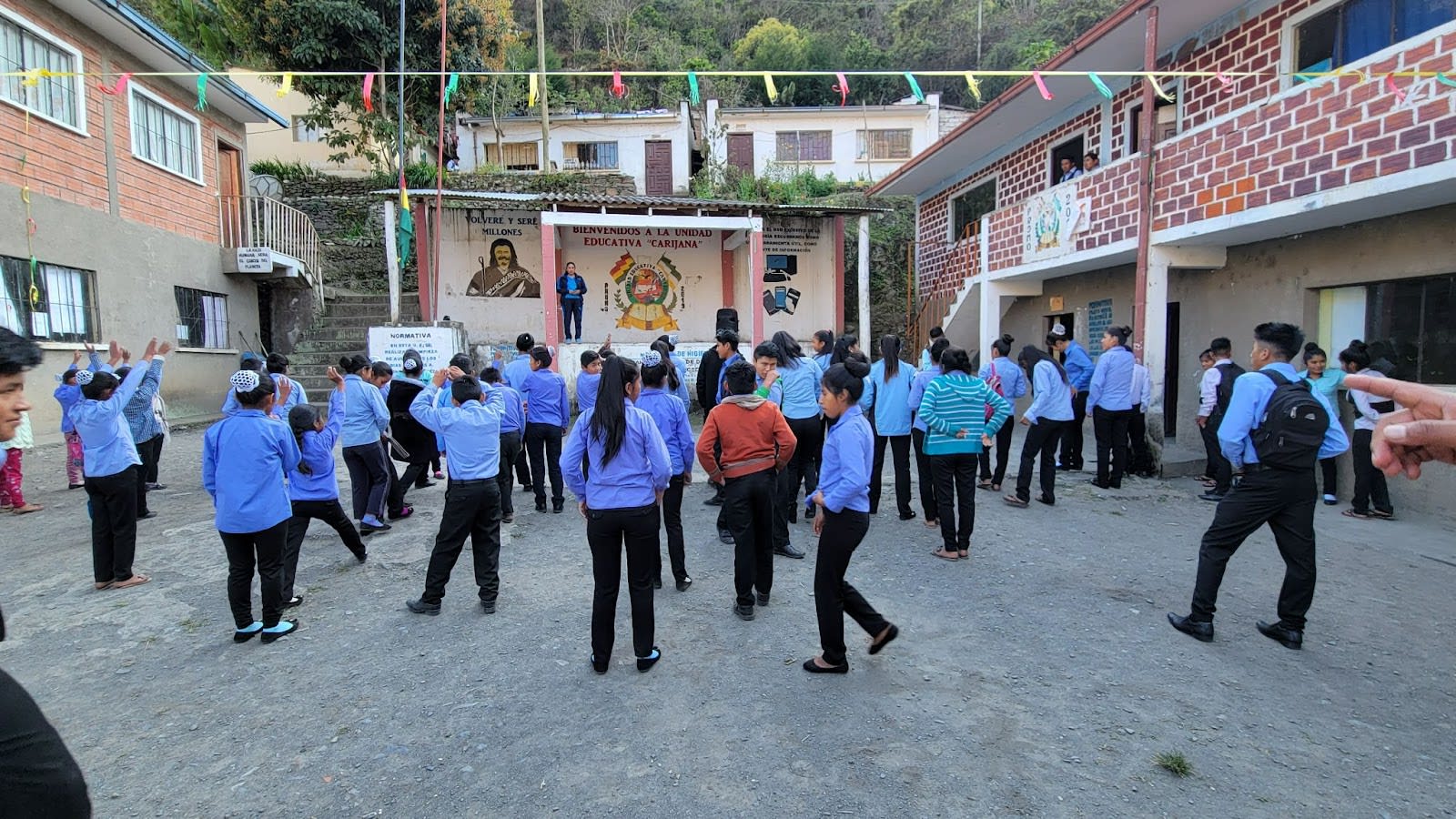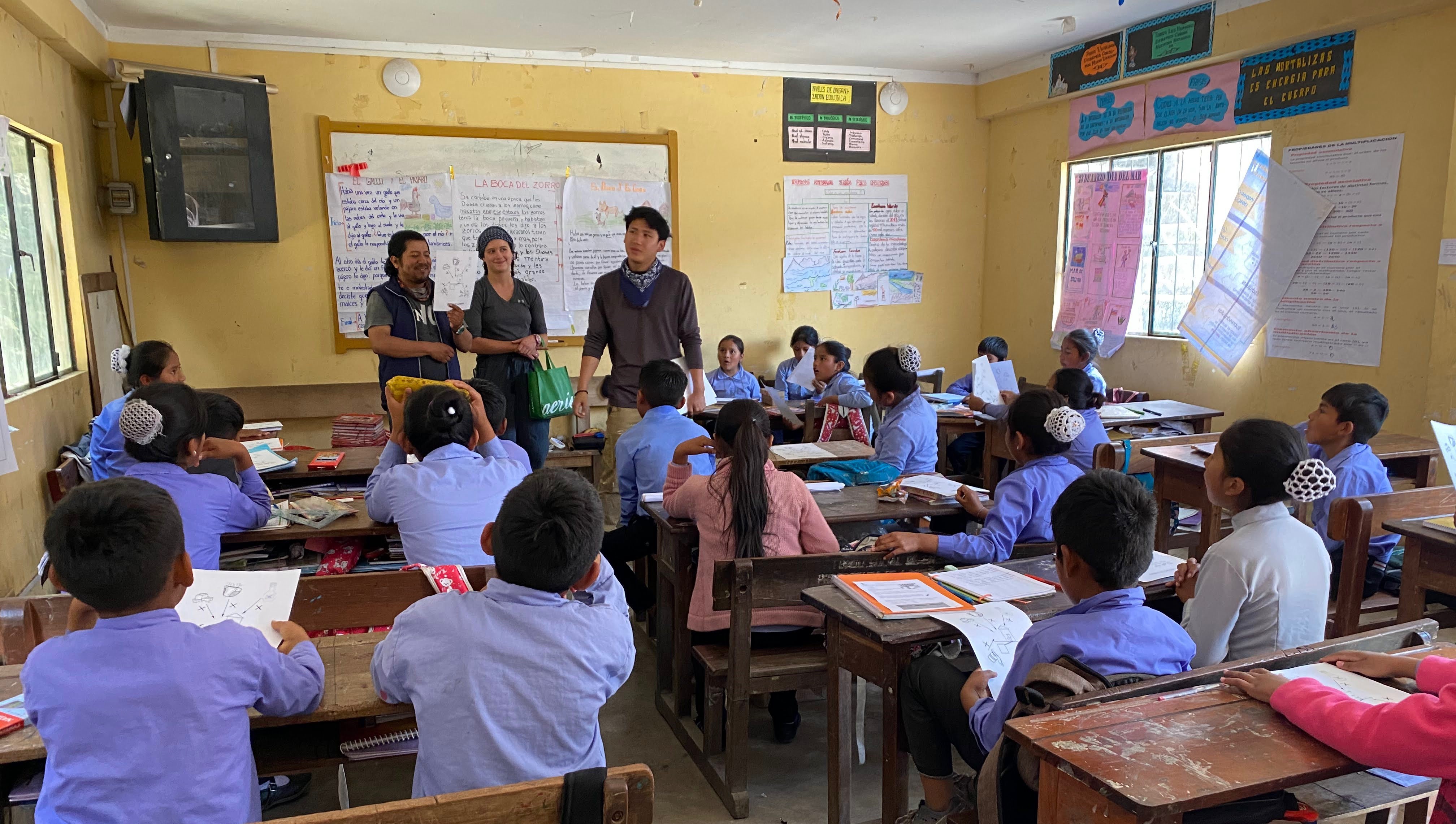
Although this project has ended, if you would still like to make a donation to support Engineers Without Borders at Pitt, you may always do so here.
Donor Thank You!
We would like to give a sincere thank you to each and every one of our donors who generously contributed to our crowdfunding campaign. During this campaign, the support from friends, family, alumni, and even strangers has been amazing. Without your generosity, we would not be able to do any of this work.
We will continue to provide updates both before and after the Bolivia travel team’s implementation trip later during the summer, so that you can see first hand where your donations are going. Once again we cannot thank you enough for all of your support.
One Week Left!
Thank you to our donors who have shown us so much support and contributed to our annual crowdfunding campaign! As of writing this, we are sitting at $6,427, and we could not be any more appreciative of our generous donors!
There is only one week left in the campaign and we would appreciate it if everyone was able to spread the word one last time, for one more big push towards our goal!
Latrine Design
Thank you to our donors who have shown us so much support thus far! As of writing this we are sitting at $5,925 in donations raised and could not be anymore thankful.
The latrines being constructed in Carijana have been designed with an emphasis on longevity and sustainability. The waste from the latrines will flow into one of two pits dug into the ground. Once one of these pits fills up, a switch box is used to direct the flow to the other pit, while the waste in the full pit aerates and becomes compost that can be used as fertilizer. Each of these pits is roughly 1 meter long x 1.5 meters wide x 1 meter deep, and are designed to be used for about two to three years before they fill up.


Education Plan
Thank you to our donors who have shown us so much support thus far! As of writing this we are sitting at $2,855 raised and could not be anymore thankful.
One of the goals of the Bolivia team is to make sure that everyone knows how to use the latrine properly to ensure that the latrine lasts as long as possible, and how to practice proper sanitation to reduce the risk of illness present in the community. To achieve this goal, we spend a day doing activities in the school with the children of the community to demonstrate the transferring of germs. We also go over basic latrine maintenance, such as what should and should not go in the latrines.
Last year, we did a “glitter activity,” where glitter represented germs. Two students started with glitter on their hands. The children then shook hands, held hands, high-fived, and so-on. After ten minutes, everyone’s hands were covered in glitter, proving that germs can spread through touch.
We ended the activity by washing our hands with a Tippy-tap: a simple, practical device that allows people to wash their hands with limited water and materials. The children were given Tippy-tap instruction guides so that they could build their own at home.


Tambanal-Ayaloma
Thank you to our donors who have shown us so much support and contributed to our annual crowdfunding campaign! As of writing this we are sitting at $1,830, more than double the amount we had one week ago, and could not be any more appreciative of our generous donors and supporters!
The communities of Tambanal and Ayaloma rest on a breathtaking ridge of the Andes mountains in southern Ecuador. There are over 50 households between the two towns, with almost 2000 feet in elevation change between the highest and lowest houses. A school lies in the middle of each town that acts as a meeting place for the rest of the village. Agriculture is the main focus and occupation for the villagers of Tambanal-Ayaloma. They grow unique crops in the distinct climates that exist in the mountains, and all sorts of livestock wander the town like chickens, pigs, cows, goats, and more. The people who make up these communities are incredibly humble and generous. The men spend most of their time in the fields tending to their land, and the women will help in the fields and look after the house and children. Although they work hard, a casual game of soccer or basketball is enjoyed next to the Tambanal school. They just have to make sure the ball doesn’t roll down the hill!
Our travel team completed the pre-assessment trip down in Ecuador this past winter break, and we have now moved into the design phase of the project. Along with the rest of the project team at home, we organized and have begun analyzing the survey data we collected on our trip. One of the members of the Pittsburgh Professional Chapter is condensing all of the GPS data so we can start using that in our alternative analysis. We meet bimonthly with the community leaders over Zoom to discuss our design so we can fully implement the community’s visions and desires.


Carijana
Thank you to our donors who have shown us so much support and contributed to our annual crowdfunding campaign! As of writing this we are sitting at $740, and could not be any more appreciative of our generous donors!
Despite its remote location, Carijana is a vibrant and unique community. It consists of about 50 different households and a bit over 300 community members. The main language spoken is Spanish, as this is taught in school along with basic English, though most older members of the community are fluent in Quechua. Carijana’s main source of income is from cash crops and subsistence agriculture. They grow oranges, corn, avocados, and they also harvest honey from their bee farms. The only public buildings are a school, school dorms, a church, and a communal meeting building. The communal meeting building is used for town meetings, celebrations, and recreational purposes. The men of the community spend most of their day farming while the women take care of their homes and their children. Sometimes, after work, everyone will gather to play soccer in the community square. The children play against each other on soccer teams for school.
Currently, we are working to prepare our travel team and update our documents for a final round of implementation this summer. The travel team is having training sessions to learn about safety, project history, travel preparation, culture, and based on data we collected and problems we observed on our trip last summer, we are updating our material to make it more concise and easy to understand. We are also updating our public health and education plans. One of our goals in the community is to teach the importance of handwashing, so we are making up activities to do with the children at school to demonstrate the spread of germs.


$25
Step 1: Bricks!
Covers the cost of 100 clay-fired bricks for the latrines in Bolivia.
$50
Step 2: Technical Training
Covers the cost of technical data collection training and construction training for the travel teams.
$100
Step 3: Pack!
Covers material and equipment costs like test strips, water test kits, shovels, gravel, etc.
$250
Step 4: Ship It
Covers the cost of shipping all the materials to the remote communities.
$1,000
Step 6: Fund a Family
Covers the expenses to build one entire latrine (materials + shipping) for a family in Carijana.








